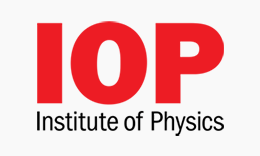Ffiseg gyda Ffiseg y Planedau a'r Gofod Cod F366 Dewch i Ddiwrnod Agored Dewch i Ddiwrnod Agored
Ymgeisio NawrRydych chi'n edrych ar y cwrs hwn ar gyfer Dechrau Medi 2024
Prif Ffeithiau
F366-
Tariff UCAS
128 - 120
-
Hyd y cwrs
4 blynedd
-
Cyfrwng Cymraeg
47%
Manylion pellach ynglŷn â'r gofynion mynediad
Ymgeisio NawrMae MPhys Ffiseg gyda Ffiseg y Planedau a'r Gofod ym Mhrifysgol Aberystwyth yn eich darparu â chraidd sylfaenol Ffiseg, ochr yn ochr ag archwiliad manwl o Ffiseg Cysawd yr Haul, a throsolwg o Wyddor Seryddiaeth Fodern.
Mae cnewyllyn Ffiseg prif ffrwd, ochr yn ochr â'n hamgylchedd dysgu cefnogol, yn sicrhau hyblygrwydd o ran astudiaethau pellach neu gyflogaeth ar ôl graddio, ac yn cynnig cefndir angenrheidiol ar gyfer y modiwlau arbenigol.
Trosolwg o'r Cwrs
Modiwlau Dechrau Medi - 2024
Noder: Y modiwlau a restrir isod yw'r modiwlau y bwriedir eu cyflwyno ar hyn o bryd yn ystod y flwyddyn academaidd nesaf ac mae'n bosibl y gallant newid. Maent wedi'u cynnwys yma i roi syniad o strwythur y cwrs.
| Teitl y Modiwl | Cod y Modiwl | Gwerth Credyd |
|---|---|---|
| Algebra a Hafaliadau Differol | FG16210 | 10 |
| Calcwlws | MT10610 | 10 |
| Dynameg, Tonnau a Gwres | FG10020 | 20 |
| Trydan, Magneteg a Mater | FG11120 | 20 |
| Algebra a Chalcwlws Pellach | MT11010 | 10 |
| Technegau Labordy ar gyfer Ffisegwyr Arbrofol a Pheirianwyr (20 Credyd) | FG15720 | 20 |
| Modern Physics | PH14310 | 10 |
| Cynllunio Gyrfa a Datblygu Sgiliau Ffiseg | FG12910 | 10 |
Opsiynau
| Teitl y Modiwl | Cod y Modiwl | Gwerth Credyd |
|---|---|---|
| Astronomy | PH18010 | 10 |
| Communication and Technology | PH19510 | 10 |
| Energy and the Environment | PH19010 | 10 |
| Teitl y Modiwl | Cod y Modiwl | Gwerth Credyd |
|---|---|---|
| Trydan a Magnetedd | FG22510 | 10 |
| Ffiseg Mathemategol | FG26020 | 20 |
| Numerical Techniques for Physicists | PH26620 | 20 |
| Optics | PH22010 | 10 |
| Sgiliau Ymchwil Ymarferol | FG25720 | 20 |
| Principles of Quantum Mechanics | PH23010 | 10 |
| Stars and Planets | PH28620 | 20 |
| Thermodynamics | PH21510 | 10 |
| Teitl y Modiwl | Cod y Modiwl | Gwerth Credyd |
|---|---|---|
| Astrophysics I: Physics of the Sun | PH39620 | 20 |
| Concepts in Condensed Matter Physics | PH32410 | 10 |
| Particles, Quanta and Fields | PH33020 | 20 |
| Physics of Planetary Atmospheres | PH38820 | 20 |
| Project (40 Credits) | PH37540 | 40 |
| Teitl y Modiwl | Cod y Modiwl | Gwerth Credyd |
|---|---|---|
| Advanced Quantum Physics | PHM3010 | 10 |
| Advanced Research Topics | PHM7020 | 20 |
| Sgiliau Uwch Mewn Ffiseg | FGM6420 | 20 |
| Electromagnetic Theory | PHM2510 | 10 |
| Prif Brosiect | FGM5860 | 60 |
Gyrfaoedd
Dysgu ac Addysgu
Tystiolaeth Myfyrwyr
Gofynion Mynediad Nodweddiadol
Tariff UCAS 128 - 120
Safon Uwch ABB-BBB gan gynnwys B mewn Ffiseg a B mewn Mathemateg
Gofynion TGAU (o leiaf gradd C/4):
Cymraeg neu Saesneg a Mathemateg
Diploma Cenedlaethol BTEC:
DDM-DMM with specified subject and B in A level Mathematics
Bagloriaeth Ryngwladol:
32-30 points overall with 5 points in Physics and 5 points in Mathematics at Higher Level
Bagloriaeth Ewropeaidd:
75% overall with 7 Physics and Mathematics
Mae'r Brifysgol yn croesawu ceisiadau israddedig gan fyfyrwyr sy'n astudio'r Diploma Mynediad i Addysg Uwch neu gymwysterau lefel T, ar yr amod eu bod yn cyflawni'r canlyniadau perthnasol o ran cynnwys y pwnc a'r dysgu. Ni allwn dderbyn Diplomâu Mynediad i Addysg Uwch na lefelau T fel cymhwyster cyffredinol ar gyfer pob cwrs gradd israddedig.
Mae ein polisi derbyn cynhwysol yn rhoi gwerth ar ehangder yn ogystal â dyfnder yr astudio. Dewisir ymgeiswyr ar sail eu teilyngdod eu hunain a gall cynigion amrywio. Os hoffech wirio a yw eich cymwysterau yn gymwys cyn cyflwyno cais, cysylltwch â'r Swyddfa Derbyn Israddedigion am gyngor ac arweiniad.
|


